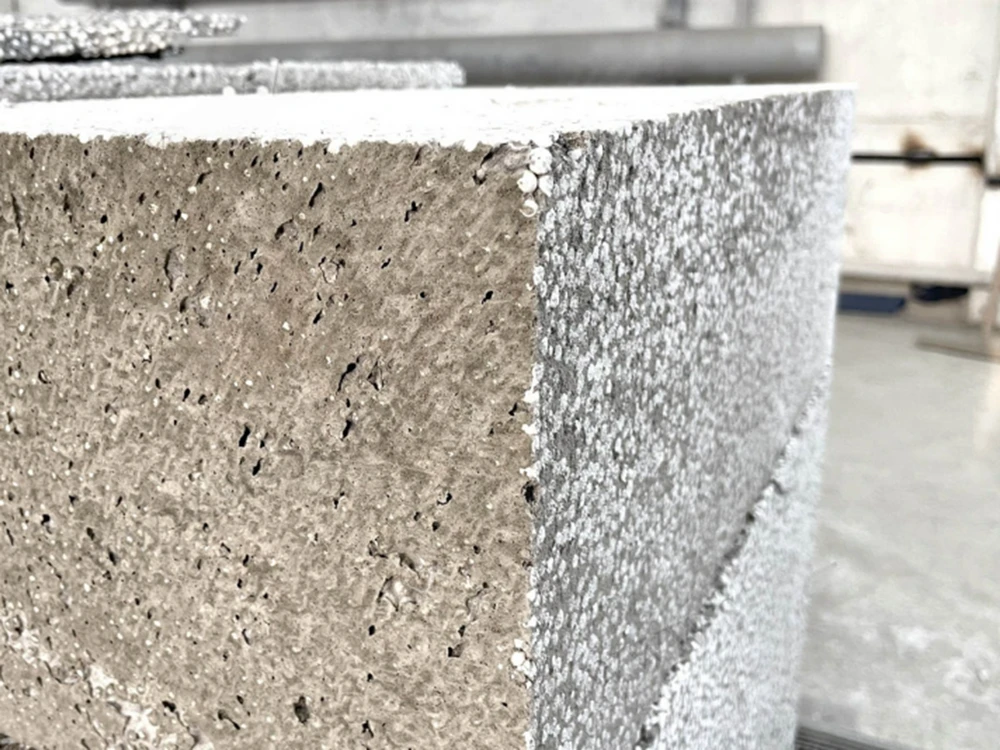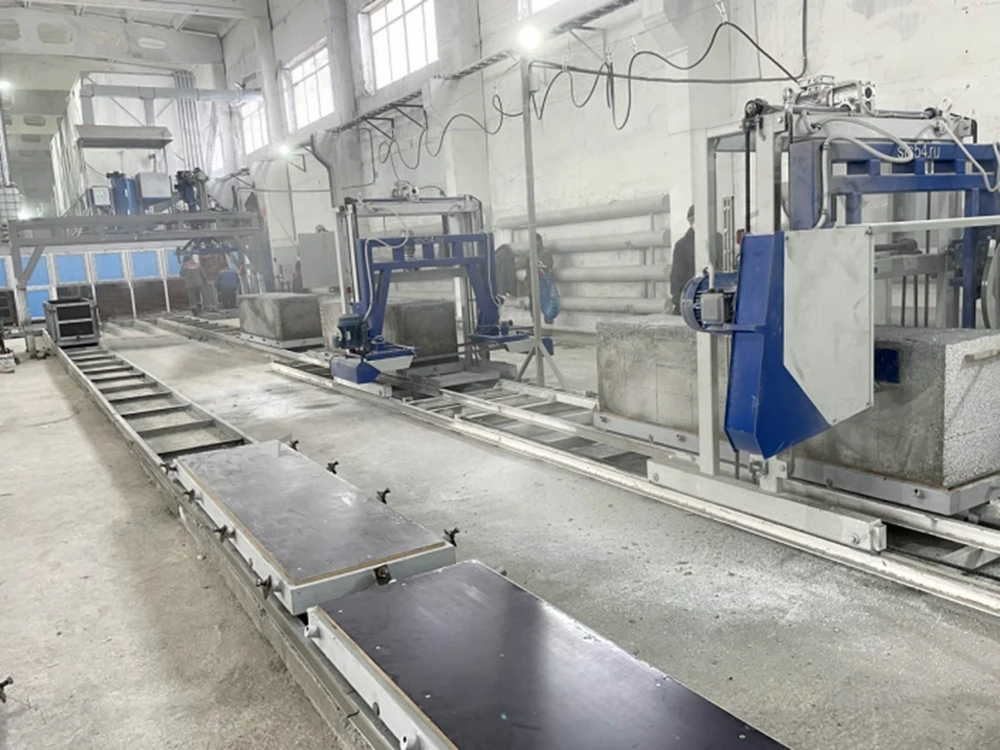Heat-saving blocks made of polystyrene concrete by Semey Cement Plant LLP are an excellent alternative to other building materials such as brick, autoclaved aerated concrete, and foam concrete due to their improved technical characteristics and wide range of applications. The automated production line allows manufacturing blocks of various densities and purposes.

| Type of polystyrene concrete | Block dimensions | Density (D), kg/m3 | Strength class (grade) | Thermal conductivity λ, W/(m·oC) | Vapor permeability µ, mg/(m·h·Pa) | Frost resistance (F) | Fire resistance group |
| Thermal insulation | 100*300*600 120*300*600 150*300*600 200*300*600 | D 250 | M 2.5-M3.5 | 0,075 | 0,110 | F 50 | Г 1 |
| Thermal-structural | 100*300*600 120*300*600 150*300*600 200*300*600 | D 250 D 350 D 400 | M 2.5 B 0,75 B 1,0 | 0,075 0,095 0,105 | 0,110 0,09 0,085 | F 50 F 75 F 75 | Г 1 Г 1 Г 1 |
| Structural-thermal | 100*300*600 120*300*600 150*300*600 200*300*600 400*300*600 | D 400 D 500 D 600 | B 1,0 B 1,5 B 2,0 | 0,105 0,125 0,145 | 0,085 0,075 0,068 | F 75 F 100 F 150 | Г 1 Г 1 Г 1 |
| POLYSTYRENE CONCRETE D500 | FOAM CONCRETE D500 | AUTOCLAVED AERATED CONCRETE D500 | |
| Compressive strength | B 2,0 | B2,0 | B2,5-3,5 |
| Flexural tensile strength | 0,7 Мпа | Does not pass tests | Does not pass tests |
| Frost resistance | F200 | F15 — F50 | F15 — F35 |
| Water absorption | up to 4 % | up to 12 % | up to 40 % |
| Seismic resistance | From 9 to 12 points | Does not pass tests | Does not pass tests |
| Environmental safety | Safe | Safe | Safe |
| Biostability | High | Low | Low |
| Thermal insulation | 0,13 Вт/(м*˚С) | 0,27 Вт/(м*˚С) | 0,17 Вт/(м*˚С) |
| Sound insulation | 61 Дб | 55 Дб | 52 Дб |
| Vapor permeability | 0,75 мг/(м*ч*Па) | 0,15 мг/(м*ч*Па) | 0,20 мг/(м*ч*Па) |
| Combustibility | Non-combustible | Non-combustible | Non-combustible |
| Crack resistance | High | Low | Medium |
| Durability | ~150 years | ~15 — 20 years | ~25 — 30 years |


Polystyrene concrete wall blocks are more efficient than other building materials in many respects